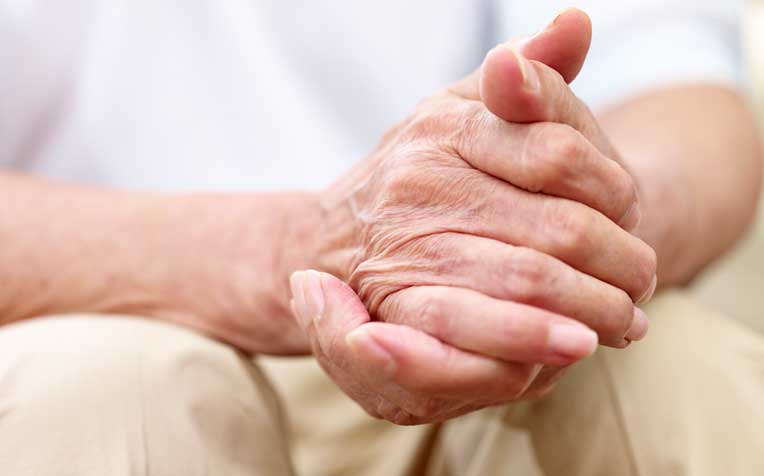HealthXchange will NEVER ask you to transfer money over a call. If in doubt, call the 24/7 ScamShield helpline at 1799, or visit the ScamShield website at www.scamshield.gov.sg.
Parkinson's Disease: Is How You Sleep a Risk Factor?

Parkinson's disease causes muscles to lose control and stiffness in joints.
During a symposium held at the National Neuroscience Institute (NNI), a member of the SingHealth group, Professor Eduardo Tolosa, a neurologist and world renowned expert on Parkinson's Disease (PD) from the University of Barcelona in Catalunya, Spain, shared that rapid eye movement behaviour disorder (RBD) could be a very early symptom of PD.
This loss of muscle control during deep sleep shows up long before the more obvious motor symptoms of PD like tremors and mobility issues appear.
RBD and PD: What's the link?
A person with RBD appears to be having a nightmare, making loud noises and jerky movements while in deep sleep. The movements can be of varying intensity and the sufferer can hurt himself or the person next to him.
"The patient usually dreams of being attacked or chased by strangers or wild animals, arguing with somebody or falling down," said Prof Tolosa. "The dreams occur every one to two hours, can last for several minutes and usually happen between 12 and 30 years before PD is diagnosed."
RBD, due to neurological changes, makes the man more prone to PD later in life. PD patients slowly lose brain cells that create dopamine, a chemical that affects emotion, perception and movement. These changes can start years before motor symptoms appear and a diagnosis is made. Prof Tolosa presented data which showed that death in these cells starts five to 13 years before tremors happen.
He added that doctors have documented cases in which people had unpleasant dreams and RBD 10 years and, in extreme cases, 50 years prior to getting PD. "The risk of developing PD rises dramatically for those who have a longer history of RBD," he said.
Other early signs of Parkinson disease
Another significant early symptom is the loss of smell. Prof Tolosa said that between 70 and 90 patients interviewed remembered losing their sense of smell, on average, five years before they were diagnosed with PD.
"This early symptom is like a canary in a coal mine, which can warn us of further brain changes down the road," he said. Other symptoms include:
- Constipation
- Erectile dysfunction
- Depression
- Cardiac abnormalities
Read on to learn about the NNI research to identify who may be prone to Parkinson's disease.
FREE WEBINAR: Are you caring for a loved one with Parkinson's or have the condition yourself? Join us for the "Move It, Feel It, Living with Parkinson" public forum, happening on 21 Nov (Sat), 8.30am, jointly organised by the National Neuroscience Institute (NNI) and Singapore General Hospital (SGH). To register, click here (registration is required)
Ref. T12
Contributed by
Related Articles
Conditions & Treatments
Public Events
Get the Health Buddy App
© 2025 SingHealth Group. All Rights Reserved.


















 Get it on Google Play
Get it on Google Play